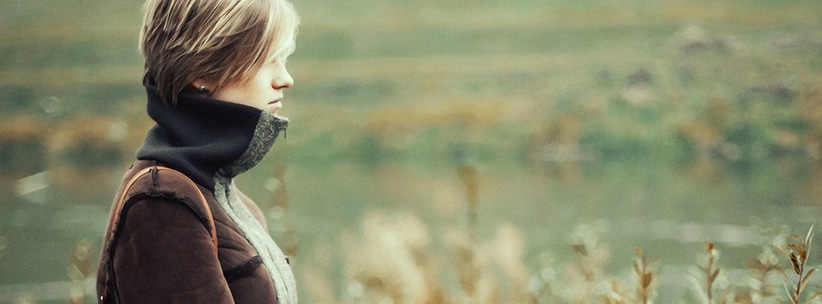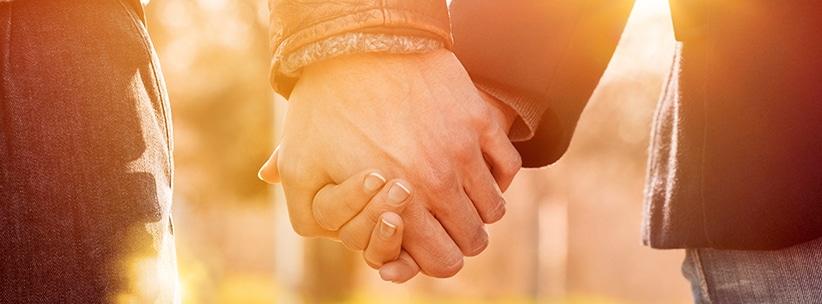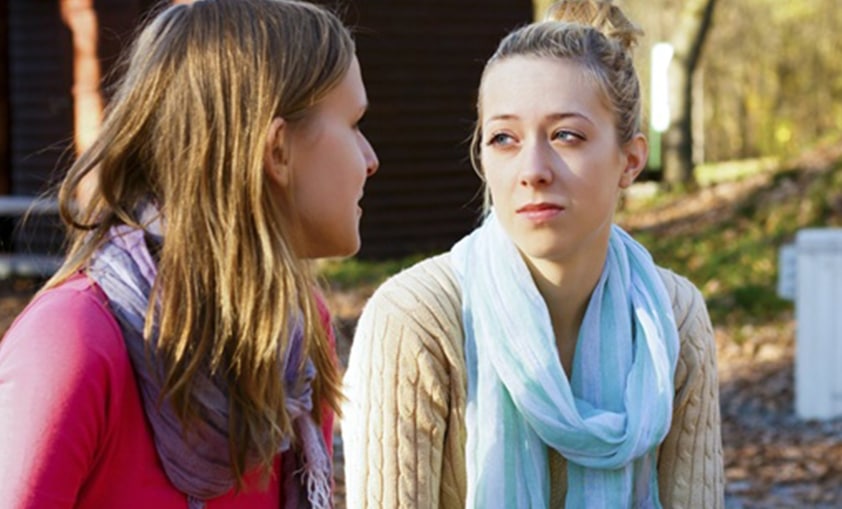I think it’s fair to say that dating, for me, has never been casual. I don’t think I’ve ever gone on a date with a guy without wondering if he was “the one”.
Most of my dating experience has also been laced with a certain amount of turmoil and confusion. I’d be dating some cute guy with big muscles, who by all accounts checked all the boxes—even the Catholic box. But for some mysterious reason, I would end up in a funk about the hunk. Was this “love”? Was this what it was supposed to be like to be in love with someone? Somehow, the experience didn’t seem to measure up to what I thought love should be. But I couldn’t quite put my finger on why. What was missing?
By the time we’d been dating for nearly two years, it was time to make a decision. He wanted to get married, I wasn’t sure. One day, I was talking to a priest friend about my consternations. And he said something that broke through the log-jam, literally shattering years of “formation by Hollywood.”
“To love,” he said, “is to will the good of the other.” As I mentally began trying that paradigm on for size, I began to realize the source of my befuddlement in my vocational discernment. That was not the way I was approaching my relationship. Rather I was looking at how the relationship made me feel.
Are Feelings the Ultimate Guarantor?

Now, granted, feelings are a super-important part of our humanity, but they are usually unstable for different reasons, and therefore not a reliable basis for the foundation of a relationship. In my case, however, the problem was in the will. We liked each other, had fun together, enjoyed kissing each other, had fights together, and even managed to live a chaste existence together. But whenever I took the long view of committing my life to him, or pondered sharing the American dream with him, I found myself in desolation. To be honest, I wasn’t even thinking about what was good for him. I was mainly contemplating my gut sense that he wasn’t prioritizing what was good for me.
Now, the desolation was telling me something important too. We eventually broke it off, and he married someone else. But it’s worth asking, how might my experience have been different if I were “willing the good of the other?” It’s an entirely different way of doing relationships, and for me it was nothing short of a Copernican Revolution.
Taking a Bullet?

About a year after we broke up, I met another man who was, on all counts, a better fit. And as we grew in love with each other, something rather extraordinary happened. One day, it occurred to me: I would take a bullet for this guy. I would jump in front of a bus for this guy. That’s kind of a crude way of saying that I was experiencing what it means to love—to will the good of the other, and even to prefer his good to my own. Yes, I was attracted to him. Yes, I desired him. But this was another level I hadn’t experienced before.
As it happened, I did, in fact, take the metaphorical bullet for this guy. As the months went by, it became clear that something else was tugging on his heart which turned out to be a vocation to the priesthood. Love, and nothing else, enabled me to say with all my heart, “If God wants you to be a priest, then I want you to be a priest.”
Letting that butterfly go was one of the hardest things I’ve ever done. It was also one of the best lessons on what love is really like.
De-bugging Formation Hollywood

Later on, plowing through St John Paul II’s great work, Love and Responsibility, I began to see clearly how Hollywood notions of love had malformed my expectations of relationships and marriage. St John Paul carefully dismantled this faulty framework, and replaced it with truth.
Our society’s great difficulty with love is that it has not learned to distinguish between loving and using. We are tempted to use another person whenever we see them as an object of possible enjoyment. Usually, this means possible sexual enjoyment, but it can also apply to thinking of a person as “arm candy”, when they increase our status in the eyes of others. Or even– expecting to get a certain buzz from being with a person. And those of us who frequent sites like this can be subject to this utilitarian mentality as well.
It turns out that being able to “will the good of the other” is essential to loving another person. Love in these terms is certainly a decision, a free act of the will. But I suspect it would be a mistake to treat love as “merely” an act of the will. There is, indeed, a certain charm of personality that gives a sense of fittingness and dearness that warms the will. And there are other essential aspects of love too—love as attraction, love as desire, comradeship, and so on. Learning to integrate all these aspects of love into a truly “Betrothed love” is what elevates human beings above the rest of creation, and it’s what makes marriage such a great good.
Fortunately, true love had crept up on me unaware, and was itself a tremendous educator. Even though it didn’t ultimately lead to marriage, I consider it to have been a great gift to discover my capacity to love in a quite total way. And I no longer wonder what it’s supposed to be like.



